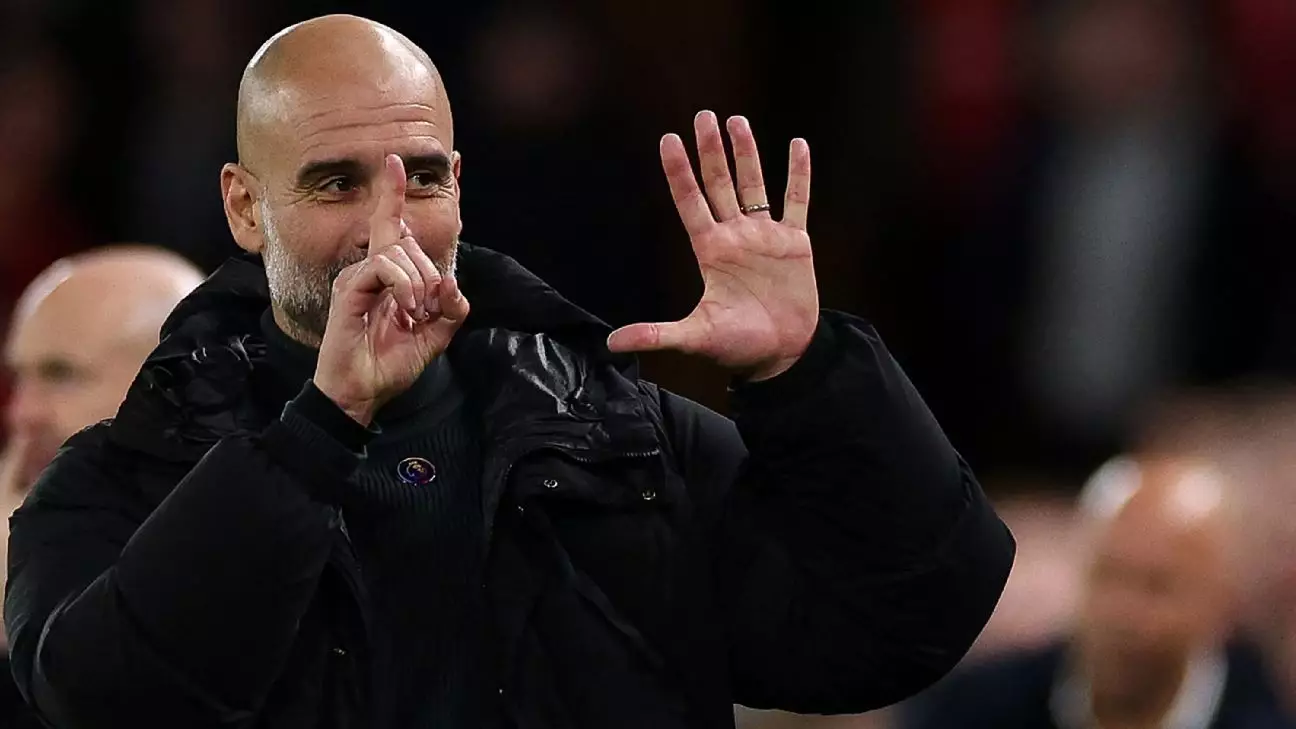In an era where football management is as much about strategy as it is about psychology, the banter between Pep Guardiola and José Mourinho continues to incite fascination amongst fans and analysts alike. Their longstanding rivalry, framed by their contrasting managerial styles and philosophies, recently reignited over comments regarding title achievements and alleged financial improprieties surrounding Manchester City. This development not only adds spice to their competitive personas but opens deeper discussions about accountability and integrity in football management.
The recent verbal sparring started when Pep Guardiola boasted about his six Premier League titles in contrast to José Mourinho’s three. During a press conference, Guardiola casually remarked that he hoped to avoid a situation similar to Mourinho’s tenure at Manchester United, where the Portuguese was dismissed amid a backdrop of controversies, including his own conflicts with the club’s hierarchy. Guardiola’s gesture, reminiscent of Mourinho’s infamous three-finger salute during his Chelsea days, underscored the competitive tension between the two. Guardiola stated, “He won three, I won six… but we are the same like that,” highlighting not just his own success but also throwing a jab at Mourinho without intending to provoke him deeply.
Mourinho, known for his sharp wit and often scathing humor, took to the media to defend his legacy. Outspoken as ever, he asserted that his achievements came “fairly and cleanly,” dismissing the notion that any of his accolades were overshadowed by any purported misdoings at City. By contrasting his clean slate with the legal troubles looming over City regarding financial rules, Mourinho painted himself as a moral victor in their ongoing rivalry. This exchange illustrates the thin line managers often tread between banter and serious allegations, making headlines while also raising questions regarding ethics in football.
The allegations concerning Manchester City date back to a time when Guardiola was assembling a team that would dominate English football from 2017 onwards. Despite the club’s firm denials regarding any wrongdoing, the suggestion of financial breaches casts a long shadow over their accomplishments. As Guardiola stated, “We are innocent until proven guilty,” which exemplifies the club’s unwavering confidence in its standing. This statement, however, presents a conflict as allegations persist, raising eyebrows within the football community.
The perception of legitimacy in football victories often extends beyond the pitch, intertwining with financial ethics, and leading to complex debates about fair play. Comparisons of titles are rendered less noble when scrutiny arises over the means by which they are achieved. Meanwhile, Mourinho’s comments indicate a broader curiosity about the implications of financial rule breaches—whether they diminish or amplify the significance of winning in the eyes of fans and players alike.
As the rivalry unfolds, fans and analysts alike ponder what truly defines a manager’s legacy. Is it solely the flow of trophies? Or does a manager’s integrity and adherence to ethical standards play an equally pivotal role? Guardiola’s light-hearted comments about Mourinho juxtaposed with Mourinho’s serious defensive stances expose the nuances in this conversation. Guardiola aims to celebrate success while defending against the unscrupulous nature of rival perceptions, while Mourinho seeks validation through the recognition of his managerial purity and ethical stance.
Both managers are now entrenched within a narrative larger than their individual careers. They represent contrasting ideologies in management—one that revels in accolades and another that seeks to uphold a moral high ground. Ultimately, their exchange reflects a microcosm of the broader footballing world, where titles are celebrated, yet discussions about the manner of their achievement loom large.
The back-and-forth between Guardiola and Mourinho serves as a microcosm of the tensions within football today, where the pursuit of excellence is constantly juxtaposed with accountability. As fans, we are left to navigate this labyrinth of achievements and allegations, continuously questioning what it means to be a champion in a world rife with scrutiny.

